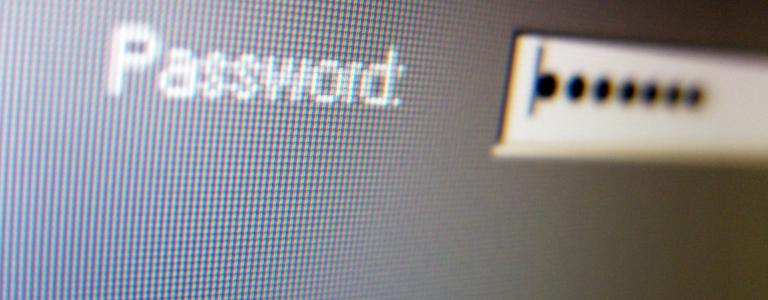- If you've never before communicated with an individual, they're probably not going to give you large sums of money. If the individual claims to be Hosni Mubarak, Ban Ki-Moon, a relative of Saddam Hussein, or the head of the Microsoft Lottery Team, it's even less likely that they will actually give you money.
- If your bank sends you a text message telling you that your ATM card has been compromised and you should call them immediately, and they've misspelled the name of your bank? It's probably not your bank. Ditto for things in the message that make it feel odd, such as substituting letters for some numbers ("call 703-5L5-BD45", or "call 7O3-SSS-l234"),
s p a c i n g o u t a l l t h e w o r d s, or inserting apparently.random*punctuation_between|words. (As a side note, if you receive a text message or email from your bank that you feel might be legitimate, call the bank using a number you already have - the one on the back of your ATM or credit card.) - If someone claiming to be a bank you've never used sends you a text message telling you that your ATM card has been compromised, do not respond to them to correct them and tell them which bank you do use.
- Facebook, Twitter, and your ISP have all told you that they will never ask you for your password in email. When you receive an email, purporting to be from one of these entities, telling you that your access will be shut off IMMEDIATELY if you don't reverify your account by mailing them your password? That's probably not legitimate.
- Things that seem suspicious from people you know in real life should warrant a non-email contact before action is taken. For example, when a Facebook friend sends you a message begging for some money because he lost his passport while on vacation? Give him a call and make sure that really happened. An email from your sister chortling over a YouTube video that seems to have you in a compromising position? Drop her a line asking about it before you view it.
Mobile Messaging Security
Protect mobile messaging from evolving threats with leading, real-time, automated, and predictive mobile security products.
Email Messaging Security
Protect email messaging from evolving threats with the leader in real-time, automated, and predictive email security products.
Threat Insight
Enable security services with threat intelligence and data from the Cloudmark Global Threat Network.
The most complete, comprehensive and accurate Mobile Messaging defense solution
Industry leading predictive, machine learning technology combined with the world's largest mobile messaging threat analysis system.
Learn MoreMobile Operators
Secure Your Mobile Messaging Environment
Cloudmark mobile solutions deliver the fastest and most accurate response to protect your mobile network.
Protect Your Traffic with a Cloud Service
Utilize a cloud-based, fully managed security service to protect your network and subscribers from phishing/smishing, spam, and viruses.
Monetize Traffic by Identifying and Preventing Grey Route Abuse
Protect and increase revenues by monetizing "grey route" traffic and application to person (A2P) messaging.
Secure Your RCS and Future Mobile Messaging Traffic
Protect mobile-based Rich Communications Services (RCS) and revenues against phishing/smishing, spam, and viruses.
Secure Your Email to Mobile Messaging
Enable industry's best protection for email to mobile messaging services.
Internet Service Providers (ISPs)
Secure Your Email Environment On-Premises
Utilize the most comprehensive suite of tools and capabilities leveraging the Cloudmark Global Threat Network to protect your customers.
Secure Your Email Environment Cloud Version
Utilize a cloud-based service, best-in-class Cloudmark Global Threat Network, and fully managed SOC to protect your customers from spam, phishing, and viruses.
Provide Real-time (best-in-class) Threat Insight through Scanning and Analysis
Utilize automated, machine learning and the best-in-class Cloudmark Global Threat Network to accurately rate senders and content.
Provide a Better Email Experience to Your Customers
Delight your customers by providing a high-performance, sorted mailbox experience.
